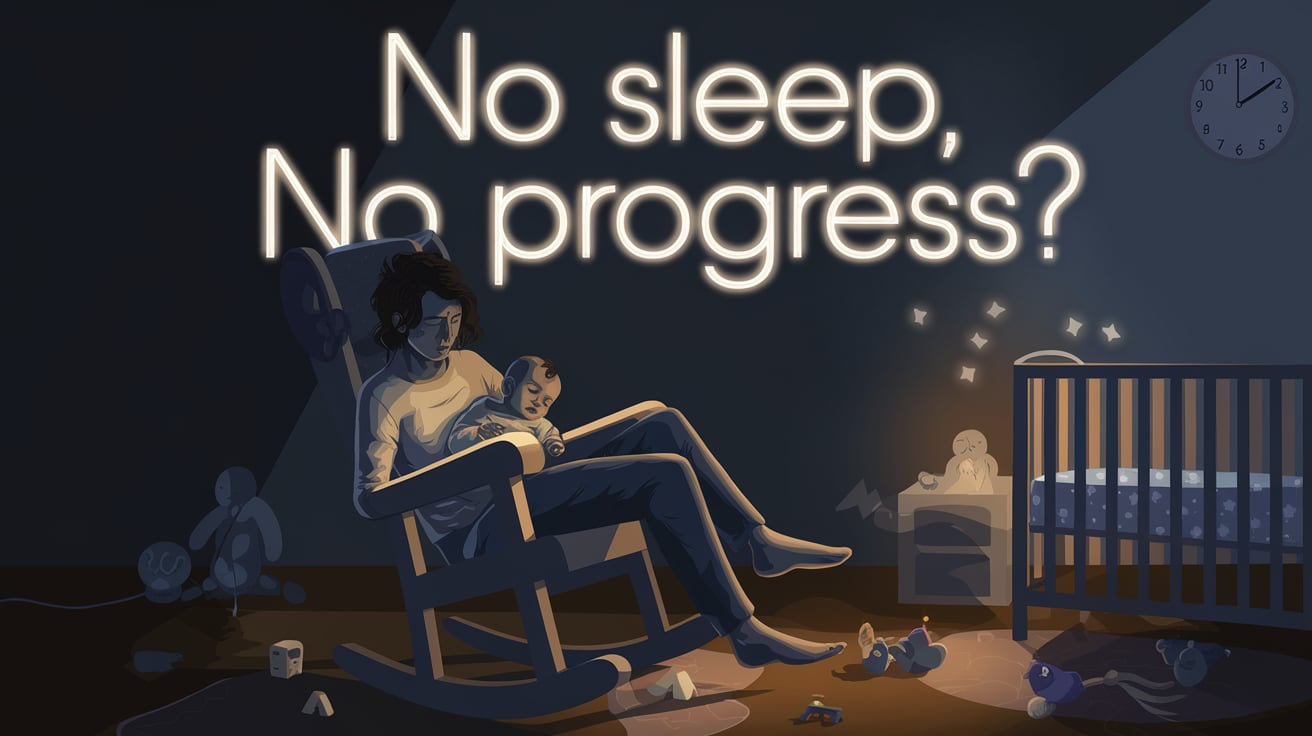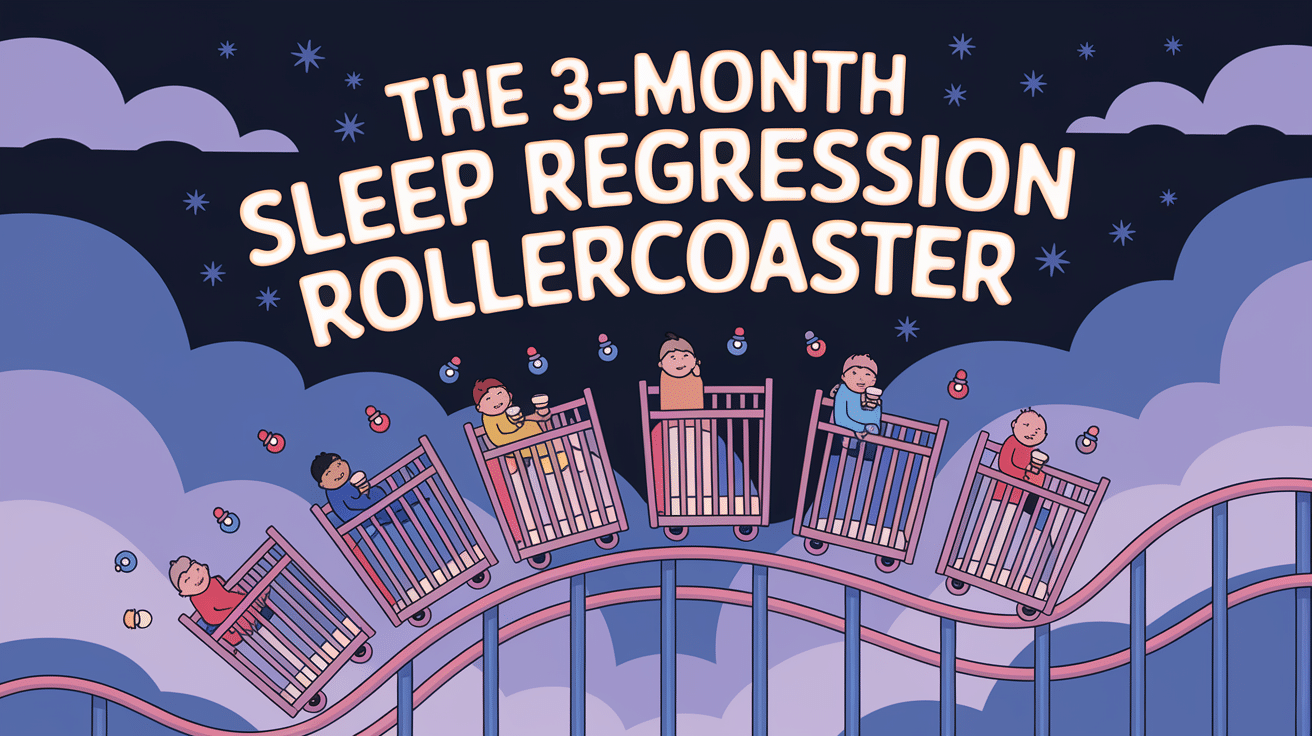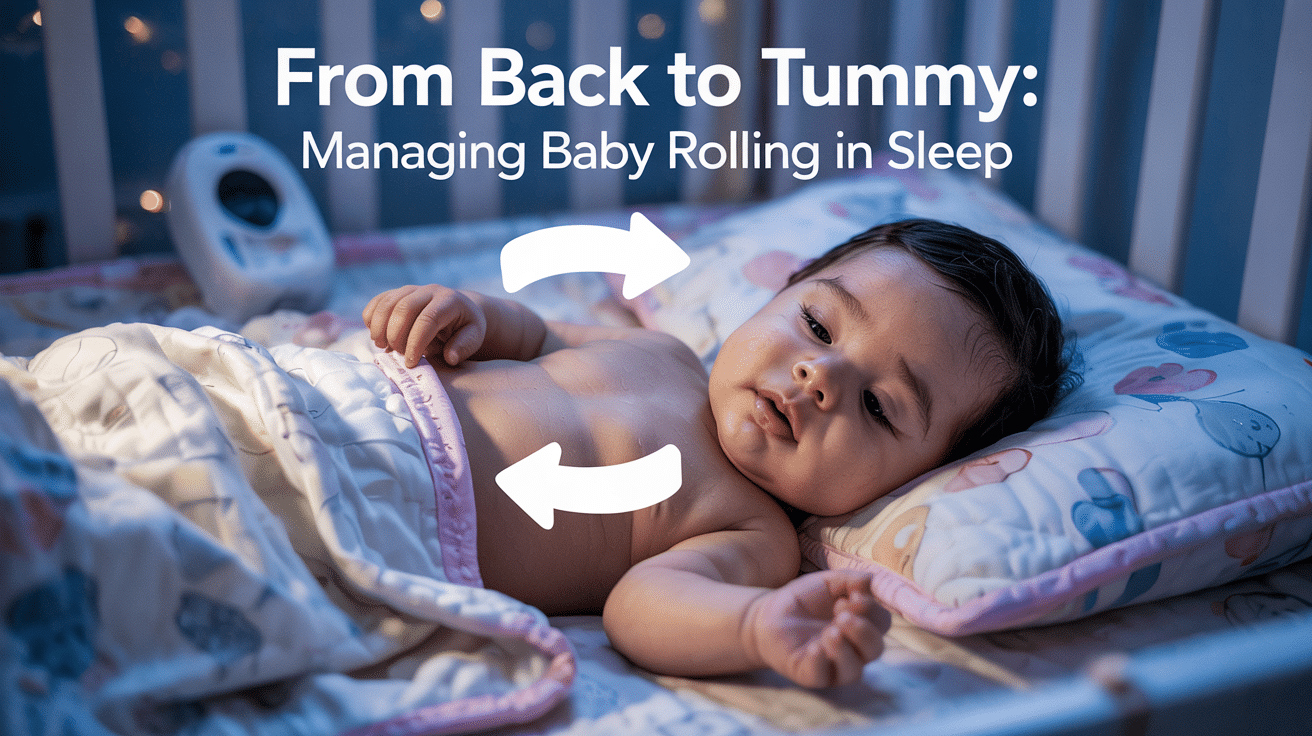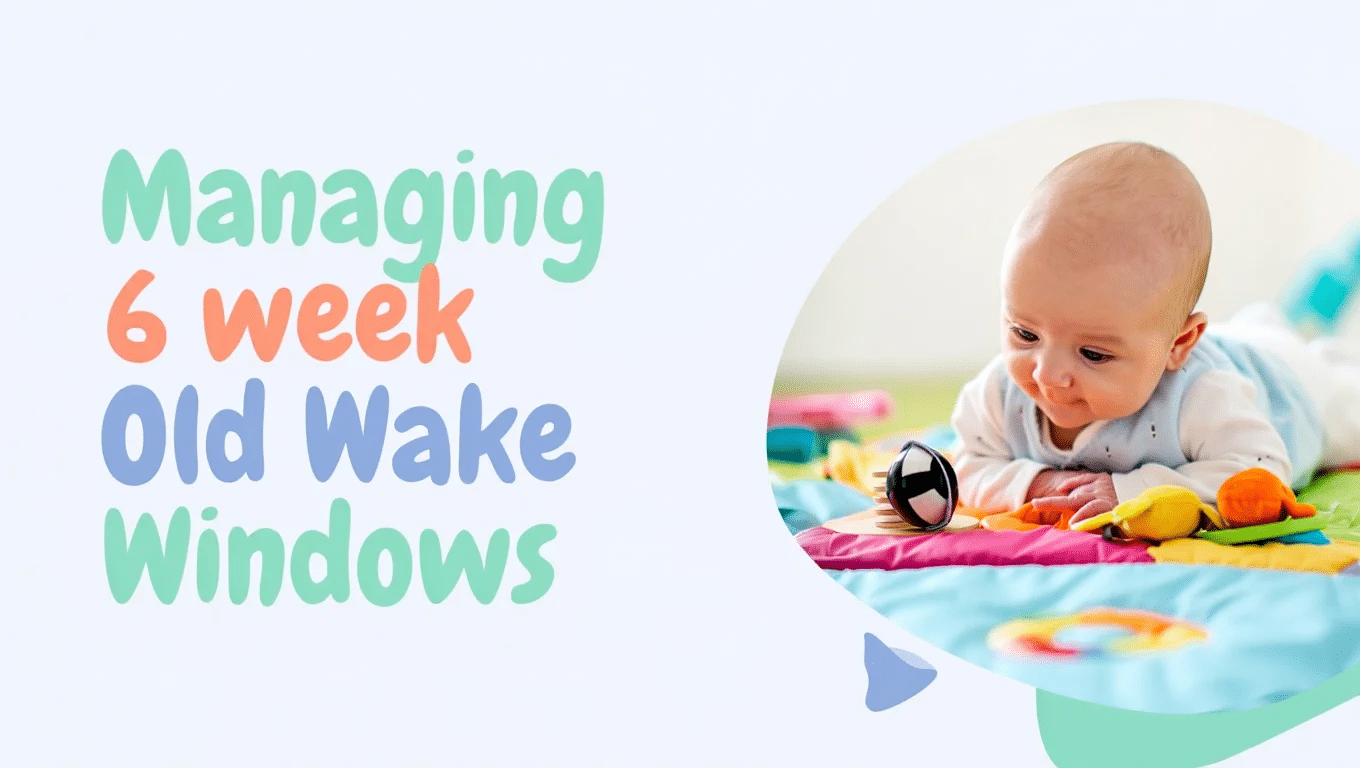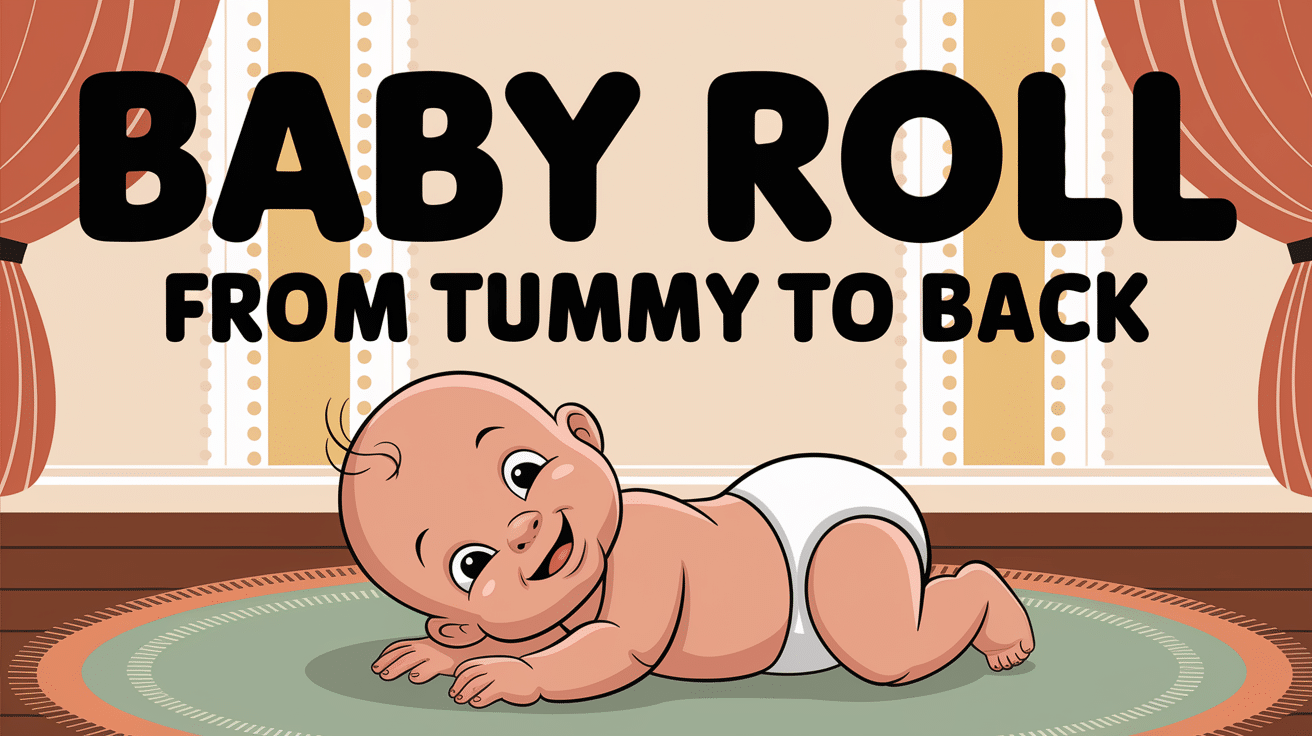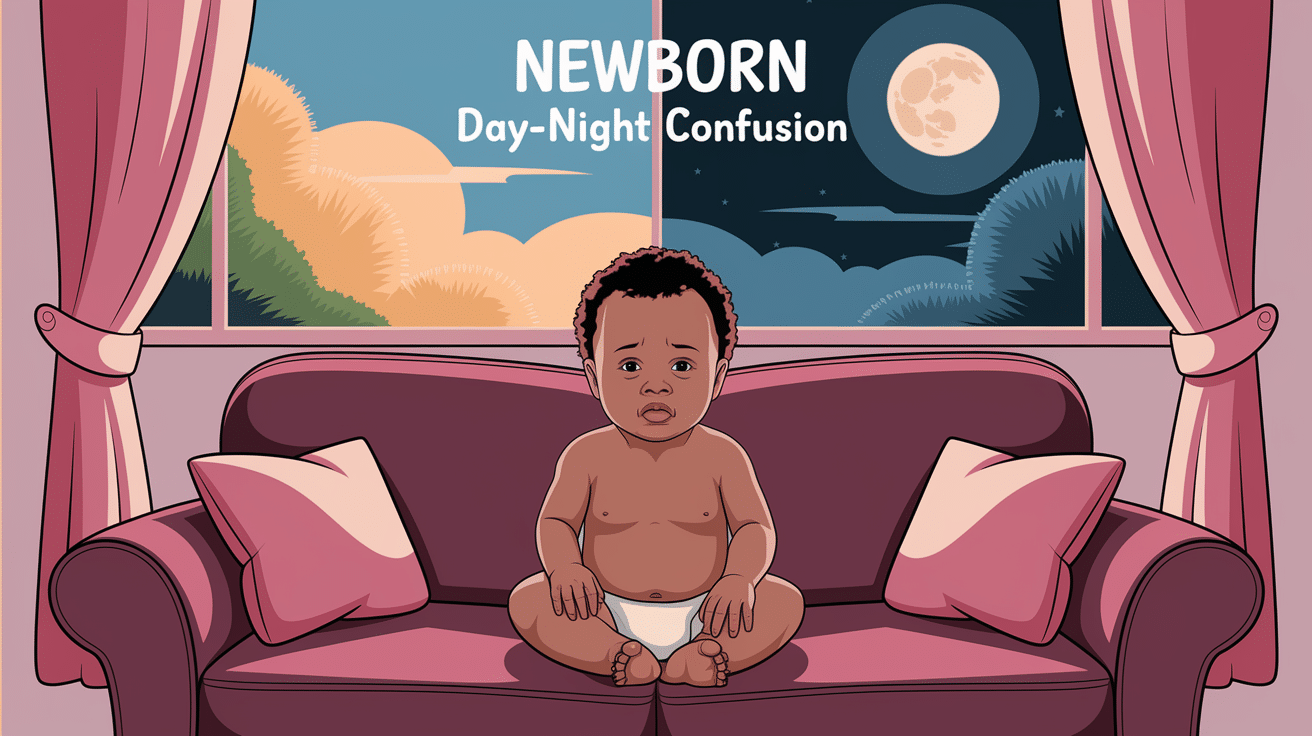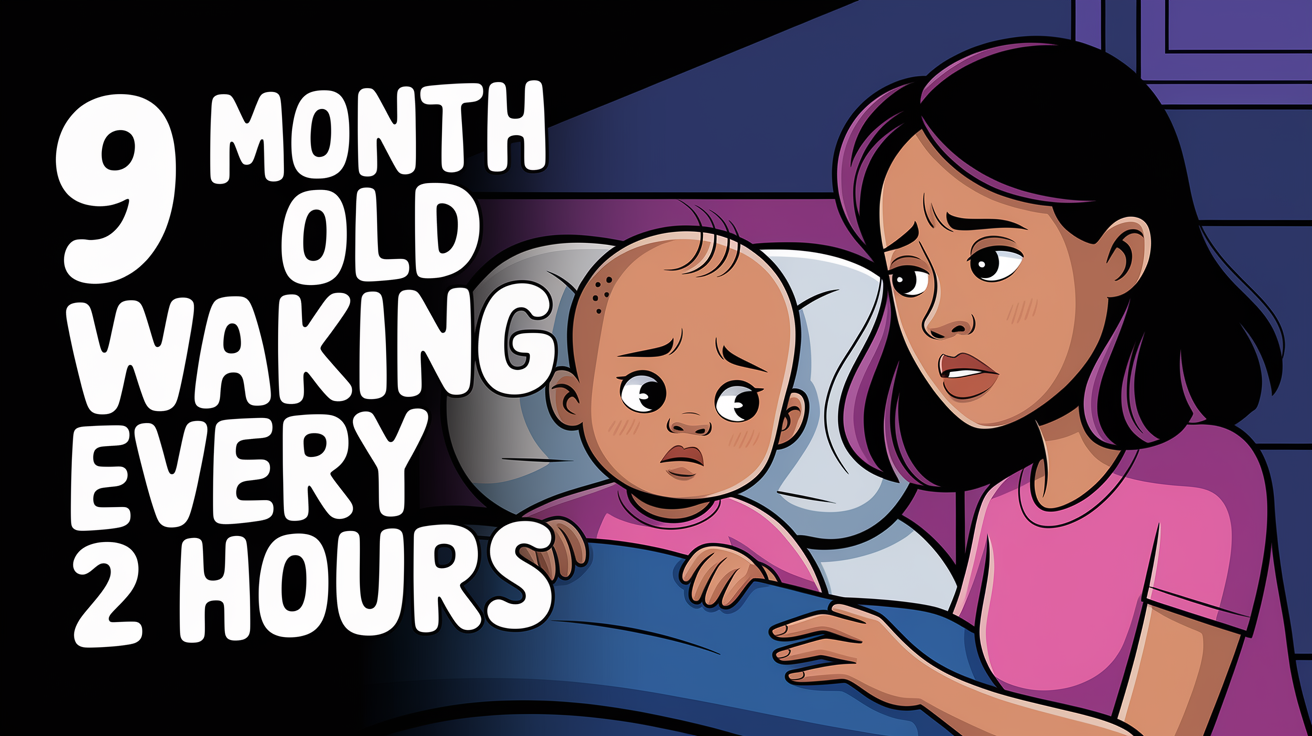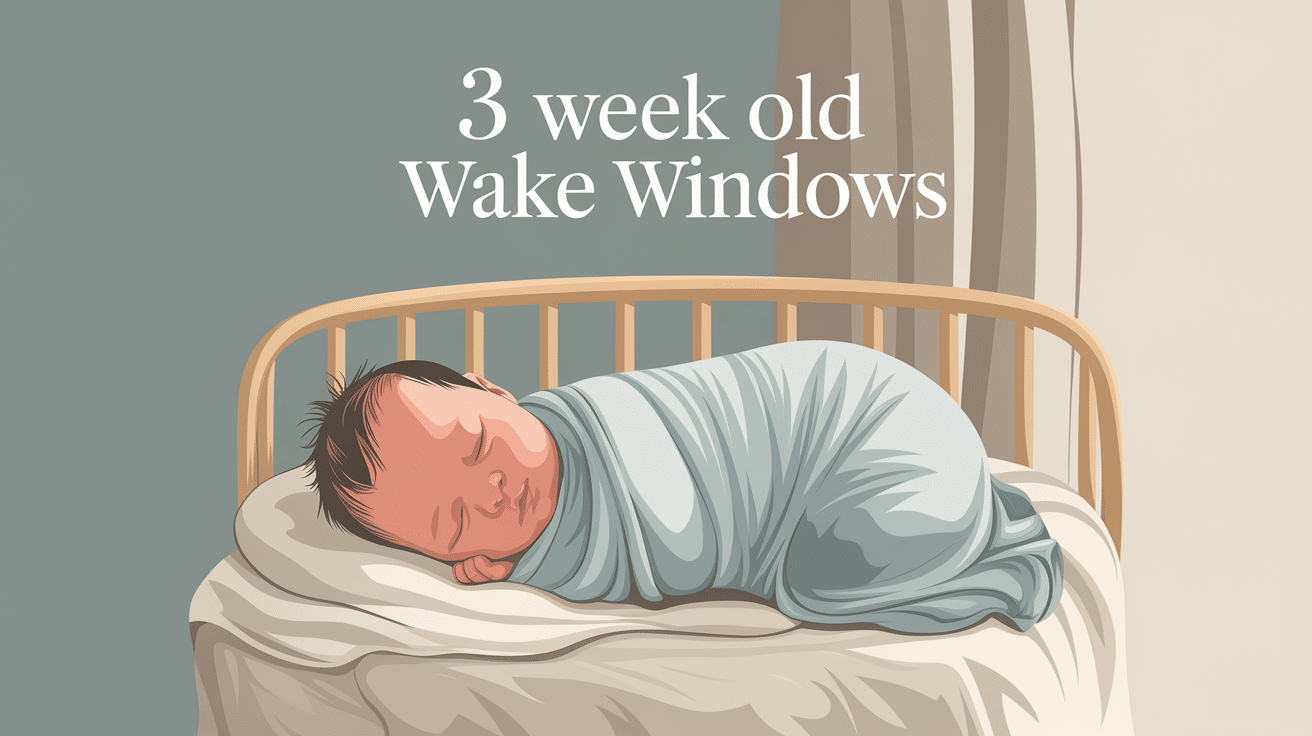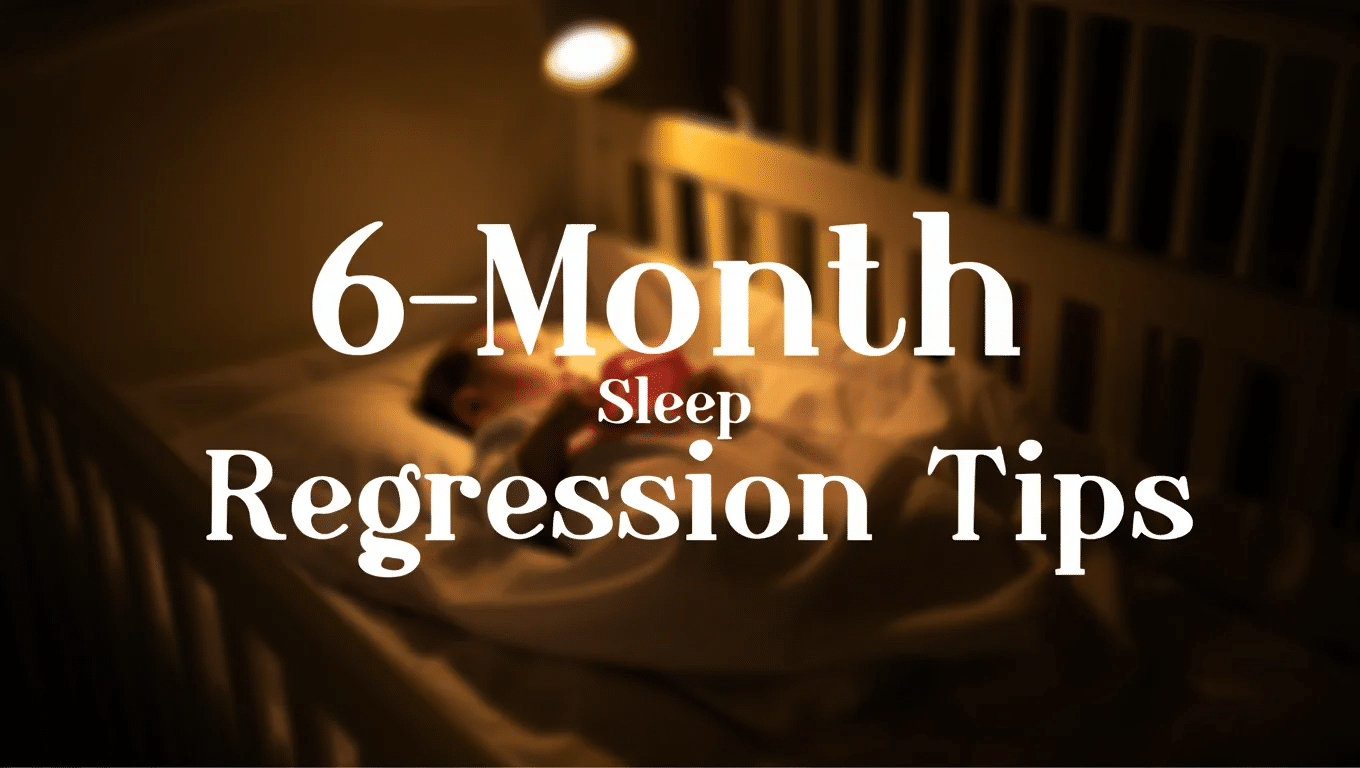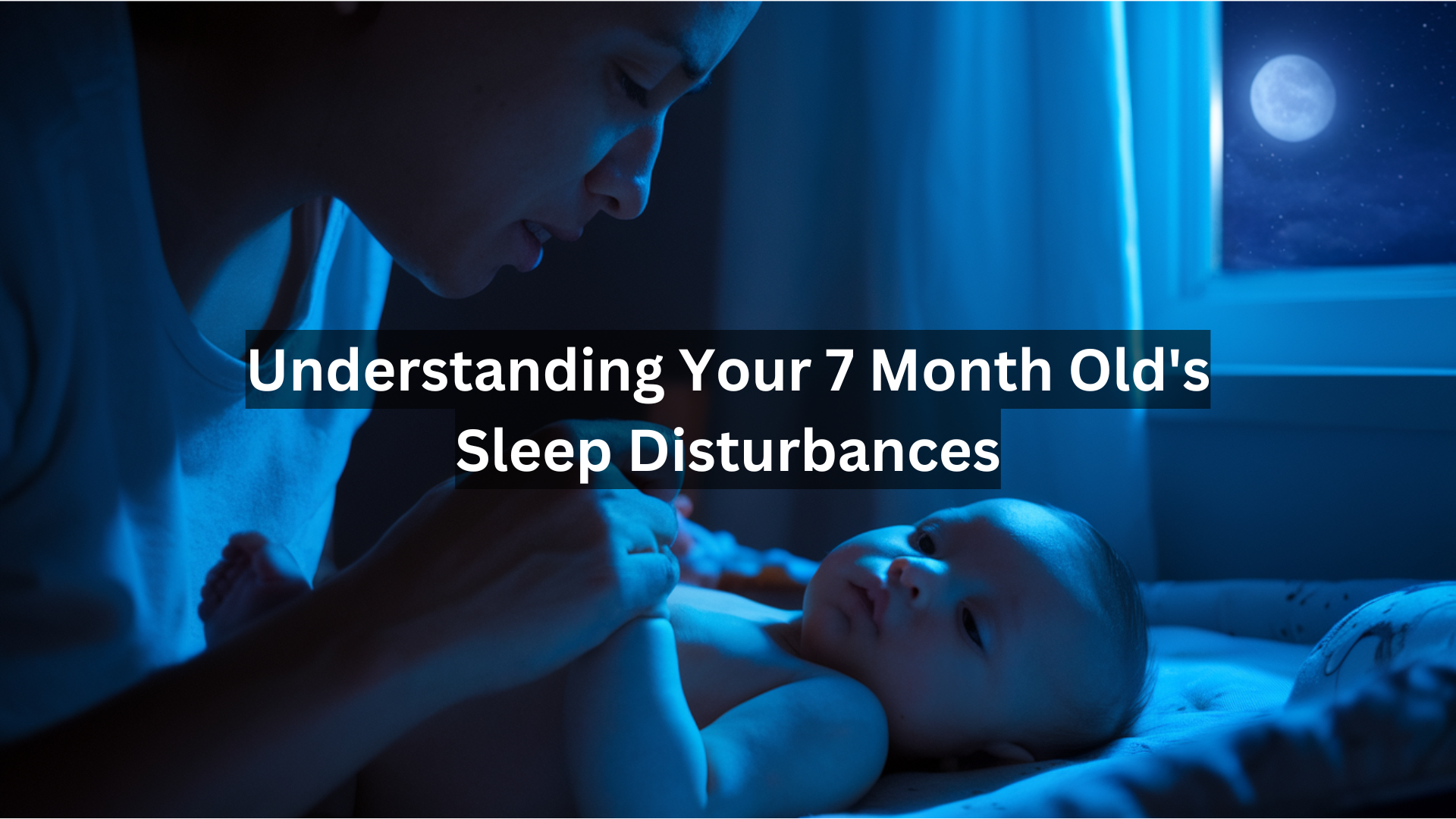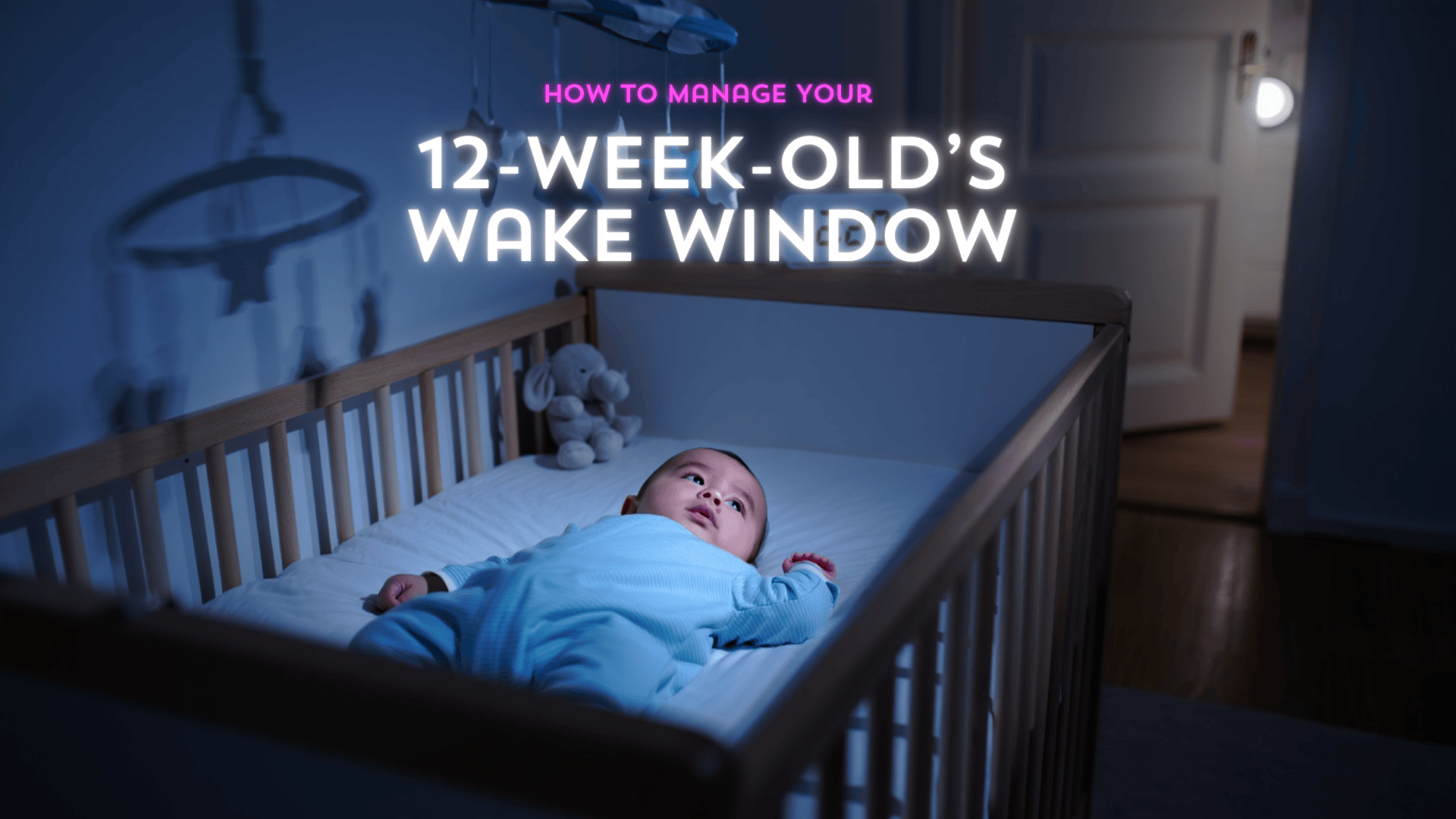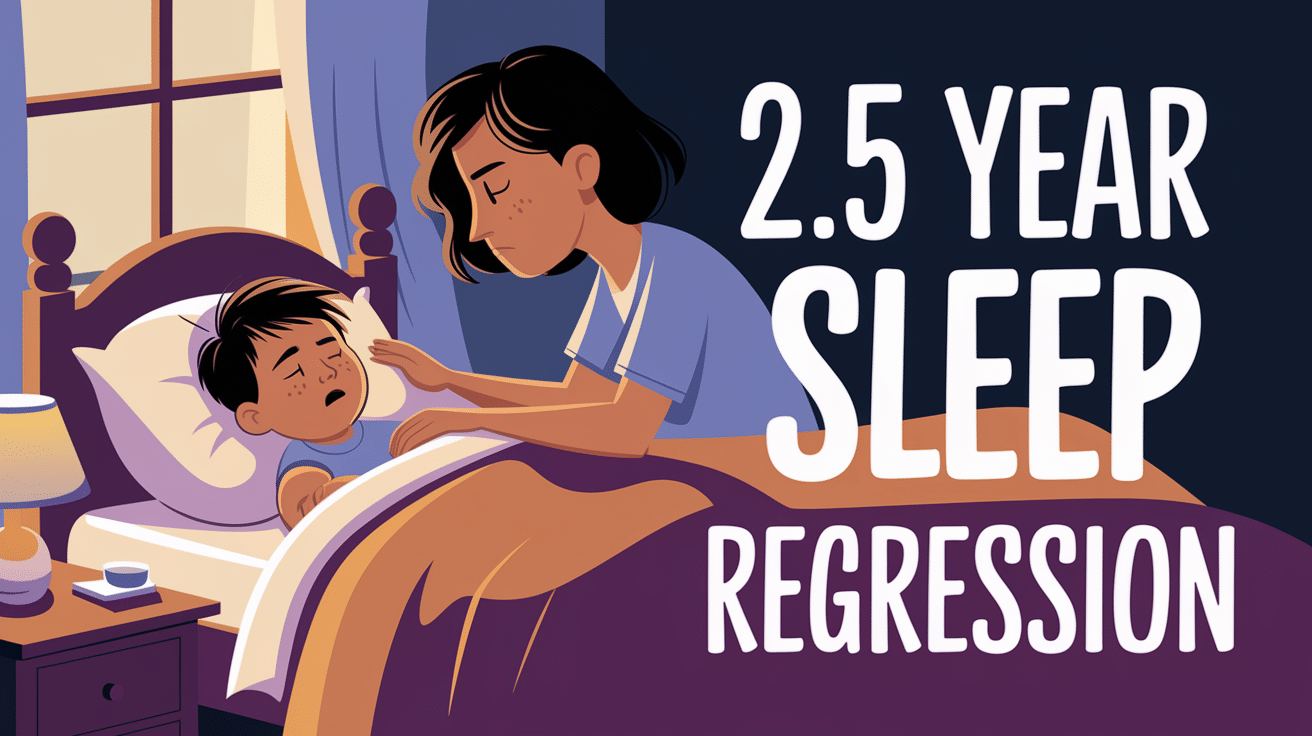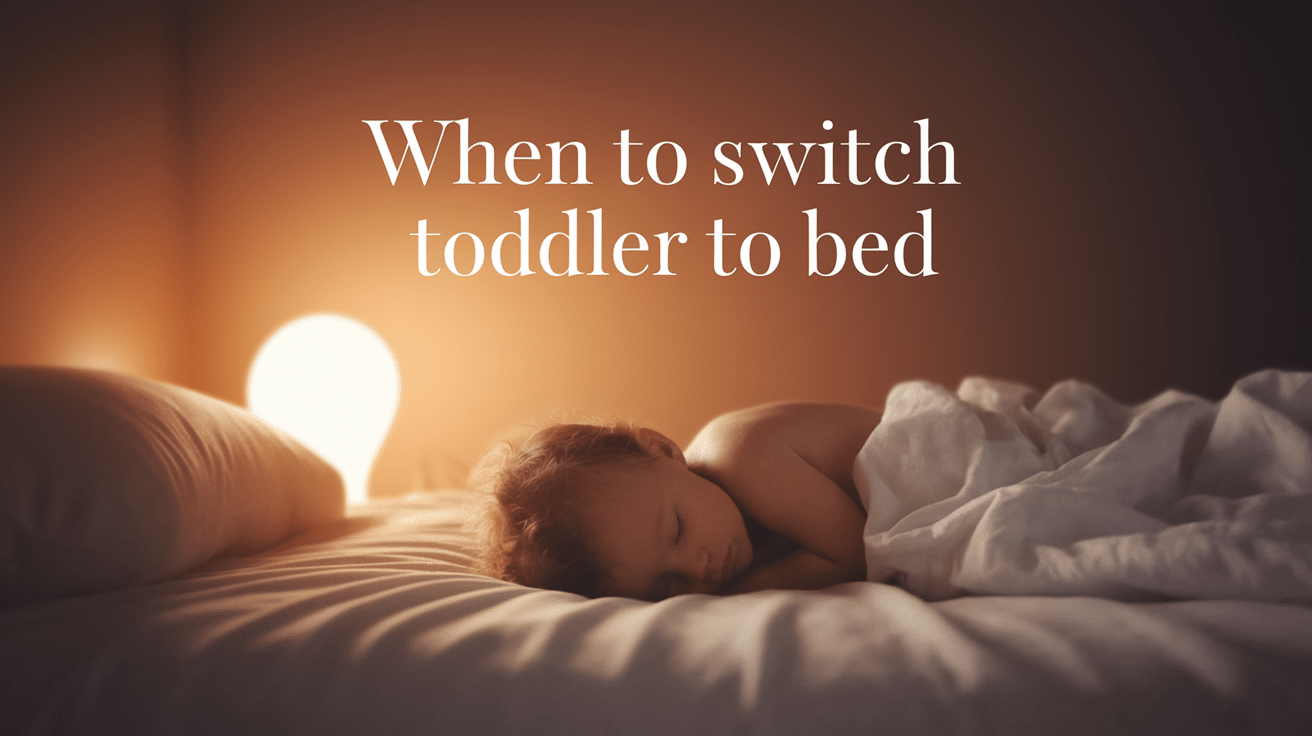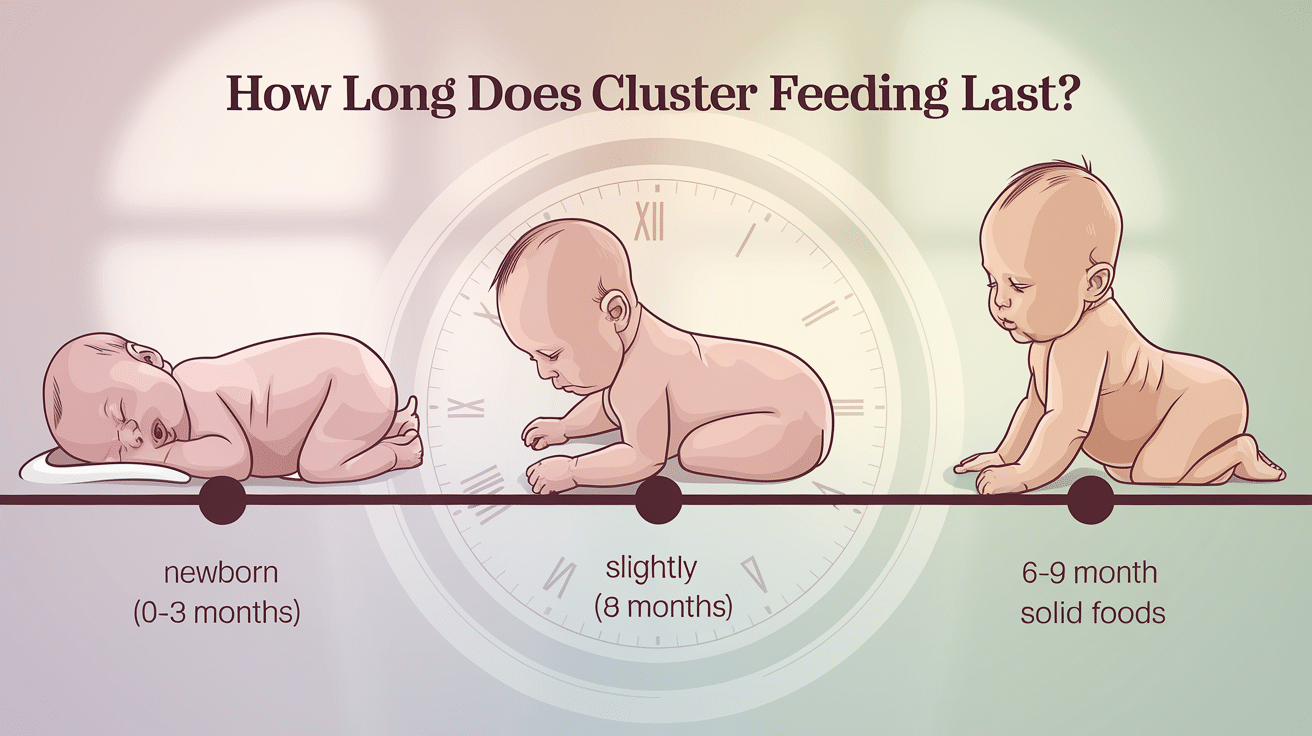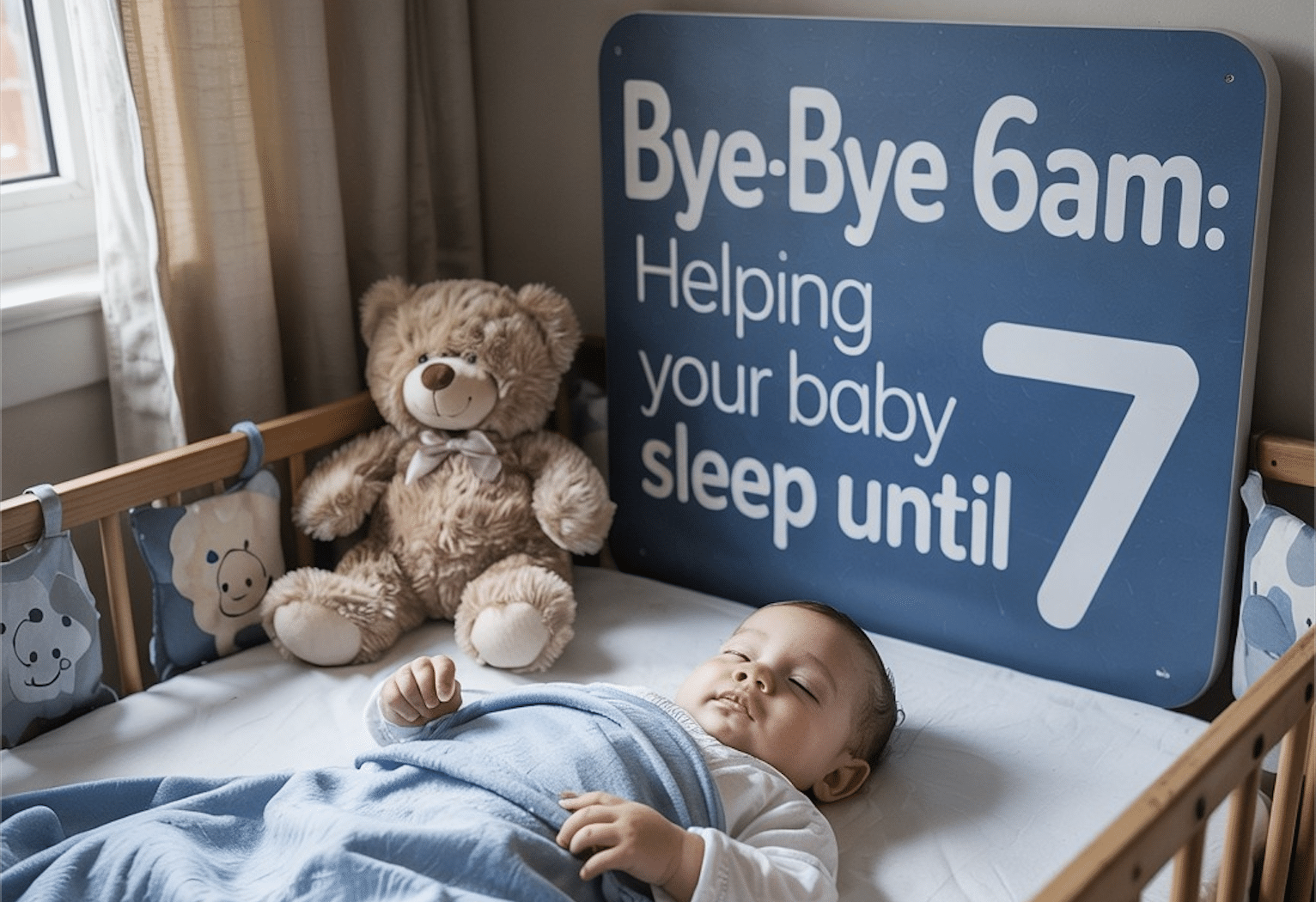
Is your baby’s internal alarm clock permanently set to “way too early”? You’re not alone—about 30% of babies struggle with early morning wakings at some point, leaving parents bleary-eyed and desperate for solutions.
Those 4-5 AM wake-ups aren’t just inconvenient; they’re biologically challenging for babies. By early morning, your little one has burned through most of their sleep pressure, making even tiny disturbances—a sliver of light, a chirping bird—enough to jolt them fully awake.
The good news is that understanding why your baby wakes early is the first step toward helping them (and you) sleep longer.
What Are Early Morning Wakings?
Early morning wakings happen when your baby wakes up between 4:00 and 6:00 AM and can’t go back to sleep. It’s that simple – and that frustrating!
Did you know that about 30% of babies struggle with early wakings at some point? Your little early bird is in good company.
Most babies’ normal wake-up time is between 6:00 and 7:00 AM. Anything earlier is considered an early waking.
Think of it this way: if your baby wakes at 5:15 AM and is happy to play in their crib until 6:00 AM, that’s not really an early waking problem.
But if they’re up at 5:15 AM crying and unable to go back to sleep – welcome to the early waking club!
Why Are Early Mornings So Challenging for Babies?

Ever wonder why your baby seems to wake up right when you’re in your deepest sleep? There’s actually science behind this frustrating pattern.
Low Sleep Pressure in the Early Hours
After sleeping for 8-10 hours, your baby’s “sleep tank” is nearly empty by early morning. Sleep pressure (the body’s drive to sleep) is at its lowest between 4:00 and 6:00 AM. Picture this: By morning, your baby has already burned through most of their sleep fuel. Even a small disturbance can wake them up completely.
Environmental and Physiological Factors
Compare bedtime to early morning:
At bedtime:
At bedtime, your child should have built up enough sleep pressure by staying awake for an appropriate duration. A dark room helps trigger melatonin production and signals that it’s time to sleep. Ensure the environment is quiet and soothing. Follow a consistent routine and use calming cues like soft music or storytelling.
In the early morning:
In the early morning, babies often have low sleep pressure, making them more prone to waking. Light may start leaking into the room, signaling it’s time to rise. Household noises and birds chirping can disturb rest. Babies are also in a lighter sleep stage, increasing the chance of early wake-ups.
No wonder staying asleep is harder at 5:00 AM than at 10:00 PM!
PRO TIP: Try this experiment: Set your alarm for 4:30 AM and see how easily you fall back asleep with the slightest disturbance. This is what your baby experiences every morning!
Common Causes of Early Morning Waking

Let’s investigate the usual suspects behind those crack-of-dawn wake-ups.
1. Excessive Light Exposure
Even tiny amounts of light can signal your baby’s brain that it’s time to wake up. Our bodies are wired to respond to light as a wake-up call. A room that seems dark to you might still have enough light to wake a sensitive baby.
The sun rises early in summer, and even a sliver of light under the door can be enough to trigger waking.
Fix it: Invest in good blackout curtains. Do the “hand test” – if you can see your hand in front of your face with the lights off and curtains closed, your room isn’t dark enough.
2. Bedtime Is Too Late
This one surprises many parents! A later bedtime often leads to an earlier wake-up. When babies become overtired, their bodies produce stress hormones like cortisol and adrenaline. These hormones make it harder for them to stay asleep in the early morning hours.
Fix it: Try moving bedtime 20-30 minutes earlier and see what happens. Many parents report that a 7:00 PM bedtime results in later morning wake-ups than an 8:00 PM bedtime.
3. Early First Nap Timing
If your baby’s first nap starts too early, it can set their body clock to an early schedule. This is especially true for babies who take their first nap just 1-2 hours after waking up.
Fix it: Gradually push the first nap later by 10-15 minutes every few days. Aim for at least 2-3 hours after wake-up time (depending on your baby’s age).
Wait! Before we continue with more culprits, let’s pause for a moment. Have you noticed any of these patterns with your baby? Identifying the specific cause is half the battle in fixing early wakings.
4. Baby Is Overtired at Bedtime
When babies stay awake too long before bed, their bodies release those pesky stress hormones we mentioned. These can cause shallow sleep and early waking.
Average wake windows by age:
| AGE RANGE | WAKE WINDOW DURATION |
|---|---|
| 0–3 months | 60–90 minutes |
| 3–6 months | 2–2.5 hours |
| 6–9 months | 2.5–3 hours |
| 9–12 months | 3–4 hours |
| 12–18 months | 4–5 hours |
Fix it: Watch your baby’s cues, not just the clock. Yawning, eye rubbing, and fussiness tell you it’s time for sleep.
5. Too Much Daytime Sleep
If your baby takes long, frequent naps during the day, they might not need as much night sleep.
Fix it: Ensure that total daytime sleep is appropriate for your baby’s age. As a general guide:
| AGE RANGE | DAYTIME SLEEP DURATION |
|---|---|
| 4–6 months | 3–4 hours |
| 6–12 months | 2–3 hours |
| 12–18 months | 1.5–2.5 hours |
6. Insufficient Daytime Sleep
The flip side is also true! If your baby doesn’t get enough daytime sleep, they can become overtired, making night sleep worse.
Fix it: Focus on quality naps in a dark, quiet environment. Even extending naps by 15-30 minutes can help with night sleep.
PRO TIP: Keep a sleep log for 3-5 days to track your baby’s total sleep. Look for patterns between daytime sleep and morning wake-up times.
7. Baby’s Hunger
Sometimes babies truly are hungry in the early morning, especially younger babies or those going through growth spurts.
Fix it: Consider a dream feed (feeding while baby is still mostly asleep) before you go to bed, around 10:00-11:00 PM.
Strategies to Fix Early Morning Waking

Now that we know the causes, changing sleep patterns takes time. Give each strategy at least 4-7 days before deciding if it works.
1. Adjusting Bedtime
Experiment with bedtime:
- Try 30 minutes earlier for 3-4 nights
- If wake time gets later, keep the earlier bedtime
- If wake time gets earlier, try a slightly later bedtime instead
Many babies have a “sweet spot” for bedtime that results in the best morning wake time.
2. Pushing the Morning Feed
If your baby wakes at 5:00 AM and immediately gets fed, try gradually delaying feeding by 5-10 minutes each day until you reach your desired wake-up time.
This doesn’t mean ignoring your hungry baby! You can briefly soothe them, but try to push the full feeding closer to your goal wake-up time.
3. Darkening the Nursery
Make it midnight-dark in your baby’s room:
- Use blackout curtains plus blinds
- Cover any small lights from monitors or humidifiers
- Use electrical tape to cover LED lights on devices
- Add a door draft stopper to block the hallway light
I wasn’t kidding about the hand test! If you can see your hand, it’s too bright.
4. Noise Management
White noise machines are amazing for blocking early morning sounds like:
- Birds chirping
- Traffic starting
- Family members getting ready
- Neighbors leaving for work
Place the white noise machine between your baby and the source of noise (like between the crib and the window).
PRO TIP: Start with fixing nighttime sleep before tackling nap problems. Good night sleep often leads to better naps naturally.
5. Sleep Training Techniques
Teaching your baby to self-soothe can help with early wakings. When they stir at 5:00 AM, they can put themselves back to sleep instead of fully waking.
Whatever sleep training method you choose, be consistent with how you respond to early wakings.
Additional Considerations for a Better Sleep Routine

Consistency and Patience
Sleep habits don’t change overnight, so give any new strategy at least a week before deciding if it’s working. Babies thrive on consistency and predictability.
Remember: two steps forward, one step back is still progress!
Understanding Your Baby’s Unique Needs
Every baby is different. Some naturally wake up earlier than others. Pay attention to your baby’s cues and adjust your expectations accordingly.
Some babies are just natural early risers, and a “successful” outcome might be shifting from 4:30 AM to 5:30 AM.
Parental Self-Care and Support
Early wakings are exhausting for parents. Take care of yourself:
- Trade morning duties with your partner
- Nap when you can
- Go to bed earlier yourself
- Ask family or friends for help
- Join a parent support group
You’ll be a better parent with adequate rest yourself!
When to Seek Professional Help?
If you’ve tried everything and your baby still wakes up super early, consider getting help from:
- A pediatric sleep consultant
- A sleep training class
- Your pediatrician (to rule out medical issues like reflux)
Sometimes, an outside perspective makes all the difference.
The Bottom Line
Early morning wakings stem from various causes—from excess light and poorly timed bedtimes to overtiredness and hunger.
The solutions are equally varied: darkening rooms completely, adjusting bedtime (sometimes earlier works better!), pushing the first nap later, or managing daytime sleep totals.
Remember that consistency is key, and any new strategy needs at least a week to show results. While some babies are naturally early risers, most can learn to sleep longer with the right approach.
If you’ve tried everything without success, don’t hesitate to seek help from a pediatric sleep consultant or your doctor. Better mornings are possible—even if they don’t start before 6 a.m.!
If you’re interested in more informational content on mothers and babies, feel free to click here and research other blogs that you might enjoy.
















